Project News
2019-10-01
Vol. 20: Community Planning Process in Singida
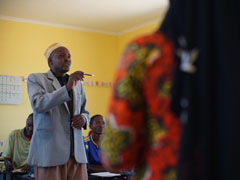 Village planning team members reflect what the village achieved last year in order to fill the gap between "needs" and "capacity" within the village. (Mtipa ward, Singida Municipal Council)
Village planning team members reflect what the village achieved last year in order to fill the gap between "needs" and "capacity" within the village. (Mtipa ward, Singida Municipal Council)
It was back in June 2018 when all 7 LGAs in Singida Region started providing 3-month training for ward extension officers to become Ward Facilitators (WFs), with unprecedented willingness to build a mechanism at the district level, to support communities in a collaborative manner[1].
After one year of trial and error, the year 2019 started to witness the strong potential in this region through the Community Planning Process (CPP)[2]. The O&OD team, together with Master Trainers from LGTI, arrived at Mtipa ward (Singida Municipal Council) and Ntonge ward (Singida District Council) on 22nd October 2019 for a week-long trip to observe the performance of WFs in the village as well as applicability of revised CPP.
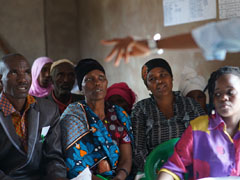 Villagers carefully listen to WF's explanation on achievement of the village. (Ntonge ward, Singida District Council)
Villagers carefully listen to WF's explanation on achievement of the village. (Ntonge ward, Singida District Council)
It was the first time for new WFs in Singida to facilitate villagers to discuss the challenge of the village and come up with a feasible action plan on how to overcome existing challenges. Nevertheless, 3 WFs in each ward cooperated in encouraging different participants as the womens' group, village chairperson, school teachers and young group leaders to obtain best results in problem solving.
Within 5 days, both villages in 2 wards managed to produce a feasible plan within themselves as a result of reflecting on felt-needs/problems and actual capacity of the village.
The 5-day CPP workshop was a long but fruitful experience for WFs. With these efforts taken at village level, community self-help efforts will be well reflected into the overall LGA supportive system for effective collaboration between the community and the district.
Ward facilitators are normally stationed at ward level which is often far in distance from each village. In the long run, WFs are expected to seek out and train potential villagers that could become local facilitators, so that daily challenges can be solved without much dependence on ward or district officers.
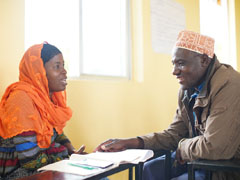 A village leader (right) seeks advice from new WF (left) . (Mtipa ward, Singida MC)
A village leader (right) seeks advice from new WF (left) . (Mtipa ward, Singida MC)
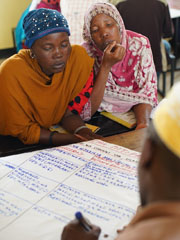 Group Discussion 1. (Mtipa ward, Singida MC)
Group Discussion 1. (Mtipa ward, Singida MC)
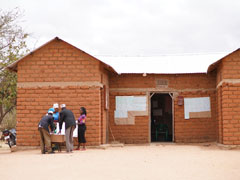 Group Discussion 2. (Ntonge ward, Singida DC)
Group Discussion 2. (Ntonge ward, Singida DC)
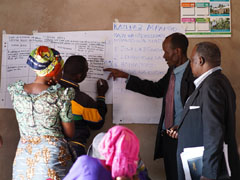 Group Discussion 3. (Ntonge ward, Singida DC)
Group Discussion 3. (Ntonge ward, Singida DC)
Notes
- [1] Refer Vol. 19 for WF training in Singida
- [2] Refer to Vol. 6, 14 and 17 for Community Planning Process (CPP)
- About JICA
- News & Features
- Countries & Regions
- Our Work
- Thematic Issues
- Types of Assistance
- Partnerships with Other Development Partners
- Climate Change / Environmental and Social Considerations
- Evaluations
- Compliance and Anti-corruption
- Science and Technology Cooperation on Global Issues
- Research
- JICA Development Studies Program / JICA Chair
- Support for the Acceptance of Foreign HRs / Multicultural and Inclusive Community
- Publications
- Investor Relations
